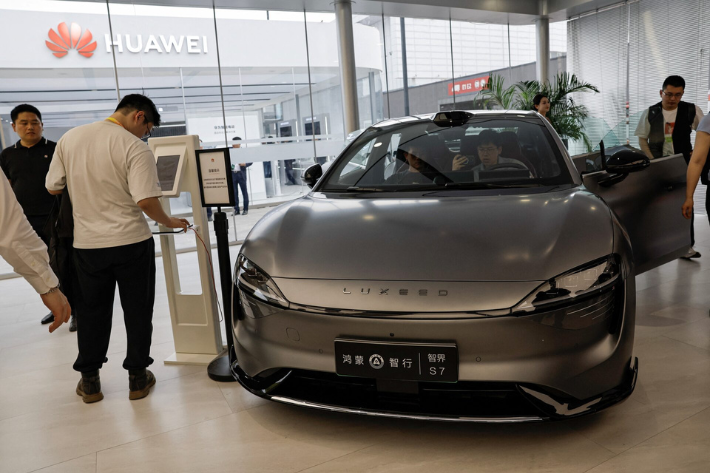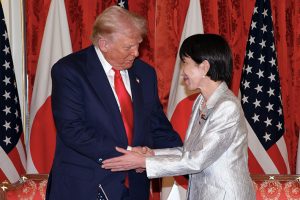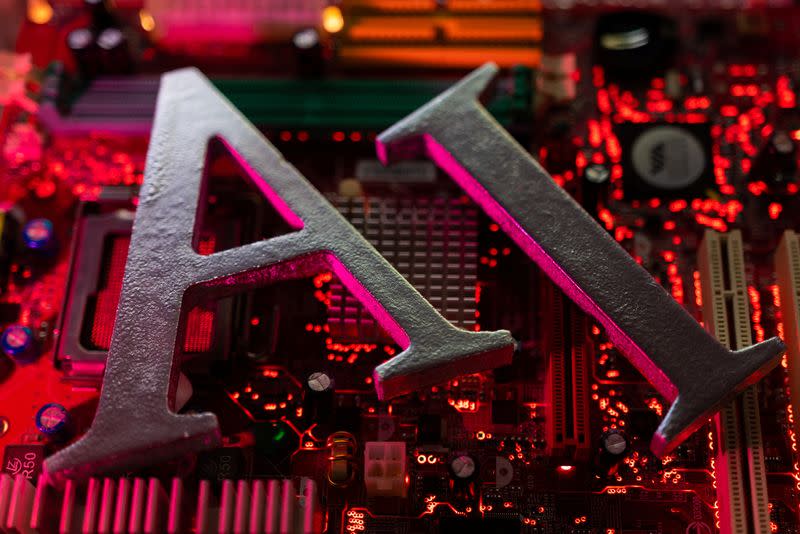Chinese carmakers are focusing on a push into southern Africa and other new markets, because of restrictions imposed on the export of electric vehicles to the US and Europe.
Africa, which is home to over a billion people, has long been a market disregarded by international manufacturers because of low incomes and high import duties, while makers of electric and hybrid vehicles have struggled because of unreliable power availability and a lack of charging infrastructure.
But companies such as BYD, Chery Auto and Great Wall Motor (GWM) are keen to leverage low prices to advance where others have struggled and use an expansion in South Africa as a stepping stone in a continent-wide strategy.
ALSO SEE: China Passes 1 Terawatt of Solar Power, Government Says
“We treat South Africa as a very important market for our global expansion,” Tony Liu, the CEO of Chery South Africa, said, who noted that Africa’s most developed auto market was a “gateway to the African continent.”
Nearly half of the 14 Chinese automotive brands currently active in South Africa launched only last year. More, including DongFeng, Leapmotor, Dayun and Changan, are set to enter the market soon.
And as new players move in, more established companies are looking into producing cars locally, allowing them to benefit from a government incentive programme that offers rebates for domestically made vehicles.
Chery considering local assembly
Liu said Chery – the number 2 Chinese auto company in South Africa – was considering partnerships or building its own factory to produce cars for the South African market and export to the rest of the continent and potentially Europe.
Omoda & Jaecoo – Chery’s premium independent brand – is also conducting feasibility studies for local assembly, its South Africa general manager Hans Greyling said.
Until now, it had not made sense for GWM, the largest Chinese automaker in South Africa by sales, to localise component production, its chief operating officer Conrad Groenewald told Reuters, as Chinese imports had been cheaper.
That is changing, however, and outsourcing to a local manufacturer or setting up a semi-knockdown plant, which would turn partially pre-assembled kits into finished vehicles, were options.
“I think now that we’ve got economies of scale … We need to revisit those feasibility studies in the next 12 months,” he said.
Testing Africa’s potential amid disputes with EU, US
Chinese carmakers, which are in the midst of a rapid switch to EVs and hybrid production, are facing growing obstacles in the US and Europe.
The growth of new EV sales has been slower than expected in many wealthy markets. And the EU’s hefty duties on imports of Chinese-made EVs and 100% tariffs in the United States have erased their primary competitive advantage: price.
Efforts to push into large emerging markets like India and Brazil have also proven to be complicated.
While the African market is still tiny by comparison, industry sources say it has massive potential for growth.
South Africa, a market long dominated by the likes of Volkswagen and Toyota, manufactured just under 600,000 cars last year. But the government estimates production could grow to up to 1.5 million by 2035 given the right incentives.
The former head of the Association of African Automotive Manufacturers once estimated Sub-Saharan Africa’s potential market at between 3 and 4 million new car sales annually.
Chinese companies stand poised to test that potential.
Chery is launching sales of eight hybrid cars, including five extended-range plug-in hybrids and three hybrid models, in South Africa. It will also introduce two small crossovers, while a pickup truck is scheduled to go on sale next year.
It also plans to bring its EV line iCar and another brand, Lepas, to South Africa in the near future, Liu said.
BYD doubles line-up
BYD, China’s top producer of electric and plug-in hybrid vehicles, entered the South African market in 2023.
It recently doubled its South Africa line-up, adding the plug-in hybrid Shark pickup truck, plug-in hybrid SEALION 6 crossover and fully electric SEALION 7 SUV models to a range that had previously only included battery-powered models.
Auto executives interviewed by Reuters view plug-in hybrids as critical to their Africa strategy.
“Battery electric vehicles have not really taken off in South Africa,” Omoda & Jaecoo’s Greyling said. “We’ve gone the route of looking more towards traditional hybrids or plug-in hybrids.”
South African sales of so-called new energy vehicles – a class including traditional and plug-in hybrids along with EVs – more than doubled from 2023 to last year, accounting for 3% share of total new vehicle sales.
While the numbers may still be small – 15,611 vehicles, mainly traditional hybrids – Chinese companies are encouraged by the trend.
“Based on our experience in China, once the market share of new energy vehicles reaches almost 10%, then the demand will start to explode,” Chery’s Liu said.
Scepticism over quality, parts, resale value
Chinese automakers face consumer scepticism over quality, spare parts availability and the untested resale value of their vehicles.
But they are counting on price and advanced technology setting them apart from Africa’s traditional market leaders and are focusing on offering plug-in hybrids and EVs with a starting price of under 400,000 rand ($22,500).
“As long as they remain affordable from an upfront cost perspective, they will be differentiated against legacy brands offering similar specifications,” Greg Cress of advisory firm Accenture said.
Omoda & Jaecoo, which launched in Africa in 2023 and operates 52 dealerships in South Africa, Namibia, Eswatini and Botswana, hopes to triple sales in the next 18 months and enter new markets Zambia and Tanzania.
BYD plans to expand its dealership network in East, Southern and West Africa, including a first-time entry into Tanzania.
Steve Chang, BYD Auto South Africa’s general manager, said he is not daunted by the slow adoption of EVs and Africa’s internal combustion engine-dominated vehicles market.
“I think South Africa and the rest of Africa have a very big opportunity to what I call leapfrog from ICE into renewable energy (cars),” he said. “Africa is a very big market.”
- Reuters with additional editing by Jim Pollard
ALSO SEE:
Local Officials in China Backed Export of ‘Zero-Mileage Used Cars’
Flood of Cheap Chinese EVs in Brazil Sparks a Backlash
‘National Emergency’: China’s Antimony Blockade Hits Battery Firms
China Plays Rare Earths Card in EV Tariff Negotiations With EU
Cargo Ship Carrying 3,000 Cars Ablaze Off Alaska, EV Fire Blamed
China Export Curbs on Rare Earth Magnets: a Trade War Weapon
Carmakers Stressed by China’s Curbs on Critical Mineral Exports
China’s Intense EV Price War Taking a Toll on Car Dealers
BYD’s Big Gains Give Chinese EV Rivals a Giant Headache
China’s BYD in Talks to Supply Carbon Credits to European Carmakers
BYD Mexico Plant in Limbo as ‘China Fears EV Tech Leaking to US’
Brazil to Fine BYD For Each Worker Found Doing ‘Slave Labour’
























